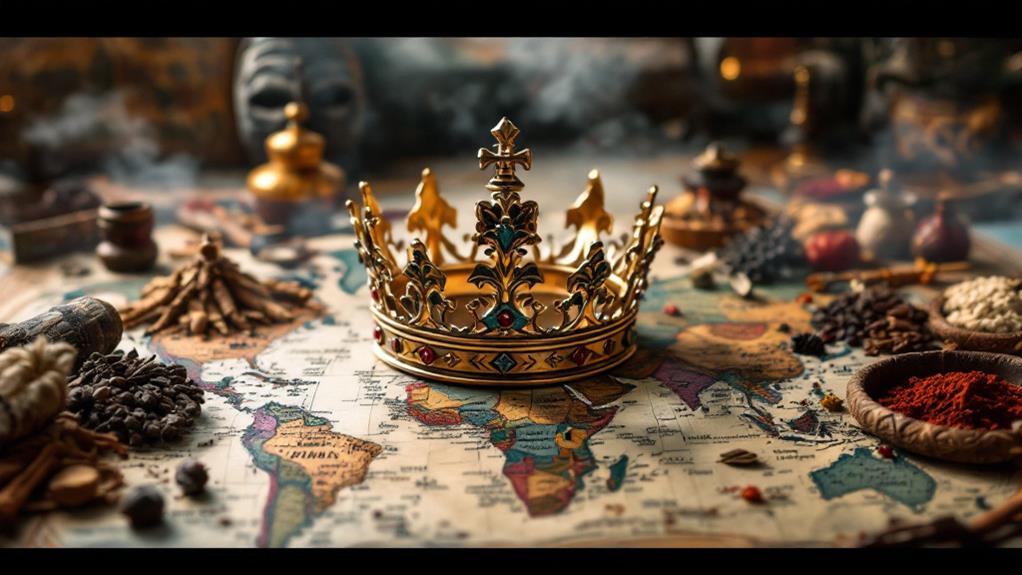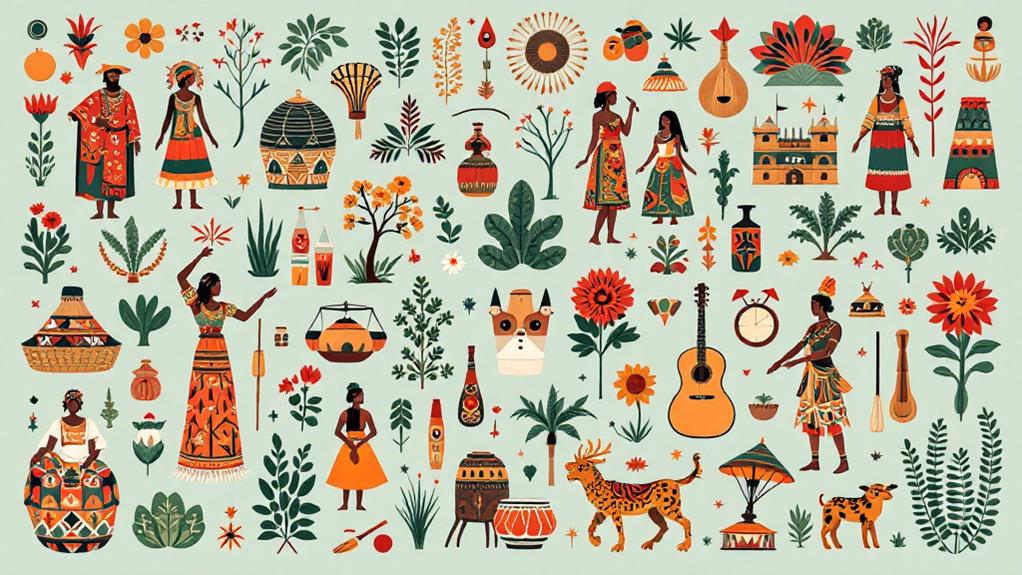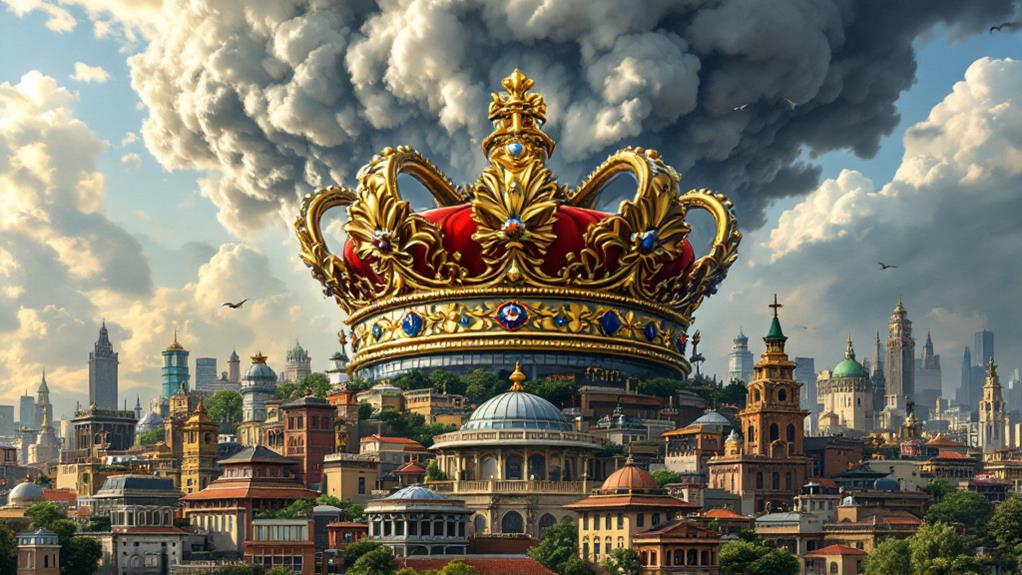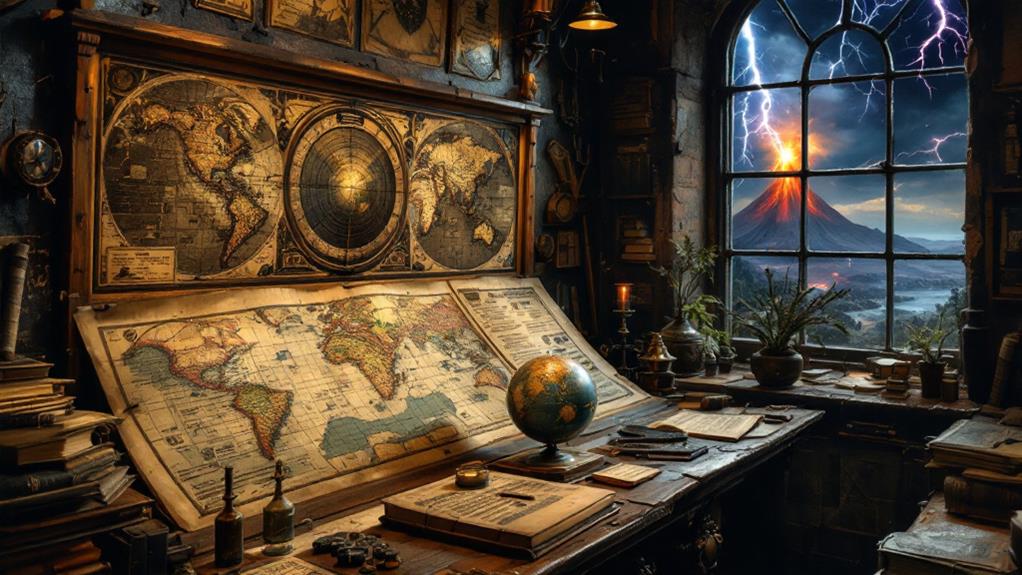The Queen’s Empire: Exploring the Impact of British Colonialism

When you investigate British colonialism's impact, you'll find a complex tapestry of influence woven into political, economic, and cultural domains. The British established rigid governance structures, disrupting traditional power hierarchies. Economically, colonies were exploited for their raw materials, enriching Britain while stifling local industrial growth. Cultural exchanges led to a blend of traditions and the spread of English as a common language. Resistance movements emerged, fueled by a desire for self-governance and inspired by global leaders. Even today, colonial legacies influence societal dynamics and economic dependencies. Unearth these intricate layers to grasp how they've shaped today's world.
Political Structures and Governance
British colonialism greatly reshaped political structures and governance in its colonies. As you investigate these changes, you'll see how the British implemented a strict administrative hierarchy to maintain control. They established systems where colonial governance was centralized, often placing British officials in top positions, while local leaders were relegated to subordinate roles or advisory capacities. This approach guaranteed that power remained firmly in British hands, with decisions made to align with the interests of the empire rather than the needs of the local populace.
You'll notice that in many colonies, traditional governance structures were either dismantled or reconfigured to fit within the new colonial framework. The British often introduced new laws and systems of administration that locals had to navigate, which could sometimes lead to confusion and resentment. In some cases, existing divisions within societies were exploited to maintain control, using a divide-and-rule strategy.
Economic Exploitation and Trade
Under British colonial rule, economic exploitation and trade were essential in serving the empire's interests. As you investigate this period, you'll notice how resource extraction became a central focus. Colonies were rich in raw materials like minerals, spices, and cash crops, which were extracted and exported along well-established trade routes. These routes guaranteed a steady flow of goods to Britain, enhancing its economy.
You can't overlook the labor systems that were enforced to optimize productivity. Indigenous populations often faced harsh working conditions, while imported laborers, such as indentured servants, were utilized to keep costs low. This labor exploitation was supported by colonial infrastructure, including railways and ports, designed specifically to transport resources efficiently.
Economic policies imposed by the British further entrenched wealth disparities. Colonies were restricted from developing their own industries, guaranteeing they remained dependent on British manufactured goods. This led to a one-sided economic relationship, enriching the empire at the expense of the colonies.
As you explore the economic aspects of British colonialism, it's clear that these strategies were geared toward extracting the highest value from the colonies, leaving lasting impacts on their economies and societies.
Cultural Exchange and Influence

Amidst British colonial rule, cultural exchange unfolded as a complex tapestry of interactions and influences between the colonizers and the colonized. You often found elements of cultural assimilation, where local customs and traditions were reshaped under British influence. This assimilation wasn't one-sided; it resulted in an artistic synthesis that blended European and indigenous art forms, creating unique expressions that resonated across both cultures.
Language evolution played a crucial role. English became a lingua franca in many colonies, absorbing local dialects and expressions, while indigenous languages introduced new words into English. This facilitated better communication but also sparked debates about cultural identity.
Culinary fusion became another area where cultures mingled. British cuisine incorporated spices and flavors from the colonies, while local dishes adapted to include British ingredients and techniques, leading to diverse gastronomic experiences.
Religious syncretism emerged, blending Christian beliefs with local spiritual practices. This mix created new religious expressions that were neither entirely British nor entirely native. Ultimately, educational exchange saw the introduction of Western education systems, which, while often marginalizing traditional knowledge, also opened avenues for intellectual growth and cross-cultural understanding. These exchanges profoundly shaped societies within the British Empire.
Resistance and Independence Movements
The drumbeat of resistance echoed across the vast expanse of British colonies as people rallied for their independence. You can picture the fervor of anti-colonial struggles, where communities rose against imperial rule. These grassroots movements became the backbone of resistance. Ordinary people, driven by shared nationalist sentiments, organized protests, strikes, and campaigns to challenge British authority. You'd find that the struggle for freedom was not just a political endeavor; it was deeply personal. It was about reclaiming identity, culture, and sovereignty.
In places like India, leaders like Mahatma Gandhi harnessed the power of nonviolent resistance, inspiring millions to join the decolonization efforts. Across Africa, figures like Jomo Kenyatta and Kwame Nkrumah emerged, spearheading movements that demanded liberation. You would see how these efforts weren't isolated; they were part of a global wave of change. Colonized people, linked by shared experiences of oppression, communicated and learned from each other, strengthening their resolve.
Every step forward was hard-won, but each victory fueled the momentum for others. As you explore these stories, you understand that the fight for independence was a reflection of human resilience and the unyielding pursuit of freedom.
Legacy and Modern Impacts

Echoes of British colonialism still reverberate through former colonies, shaping modern political, social, and economic landscapes. You see it in the social stratification that's been ingrained in many societies. Colonial rulers often implemented hierarchical systems, which prioritized certain ethnic groups over others. This legacy persists today, creating divides and tensions within communities. It's not just about who holds power; it's about who gets access to resources, education, and opportunities.
Historical narratives from the colonial period also play an essential role in how countries view themselves today. These narratives, often crafted to glorify the colonizers, can distort national identities and histories. As you explore textbooks or museums, you'll notice the remnants of these skewed perspectives. They're slowly changing, but the process takes time and effort.
Economically, many former colonies still grapple with systems established during colonial times. These systems were designed to benefit the colonizers, not the colonized. As a result, you might find that economic dependencies and challenges persist, hindering growth and development. Understanding this legacy isn't just about acknowledging the past; it's about recognizing its impact on the present and working towards a more equitable future.



